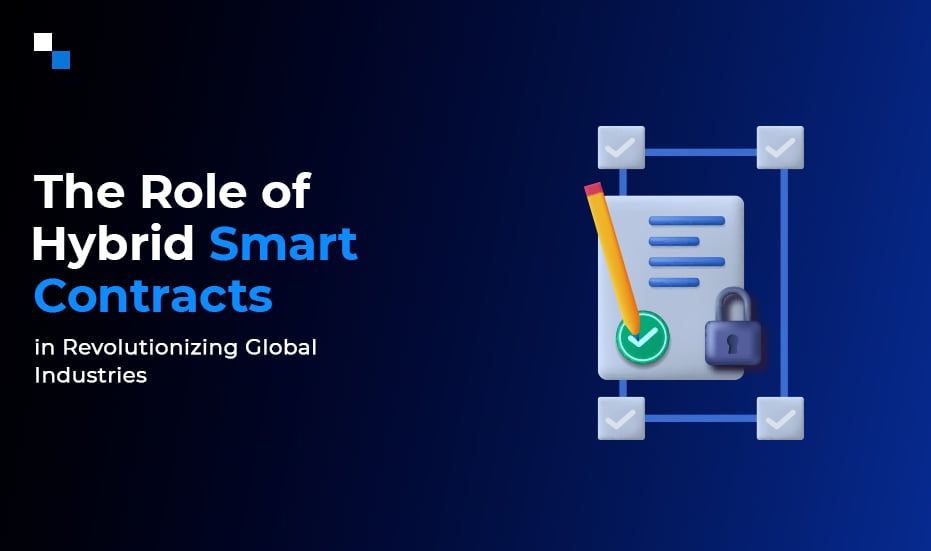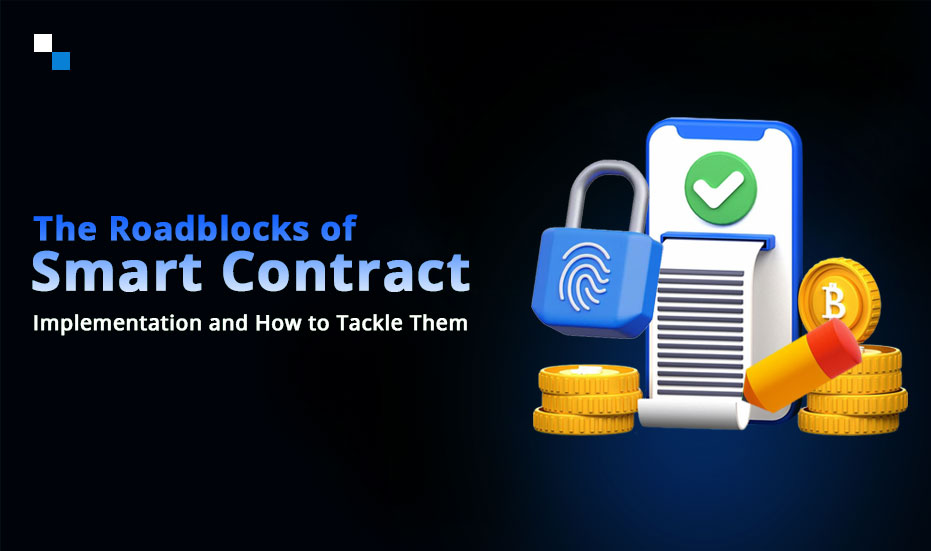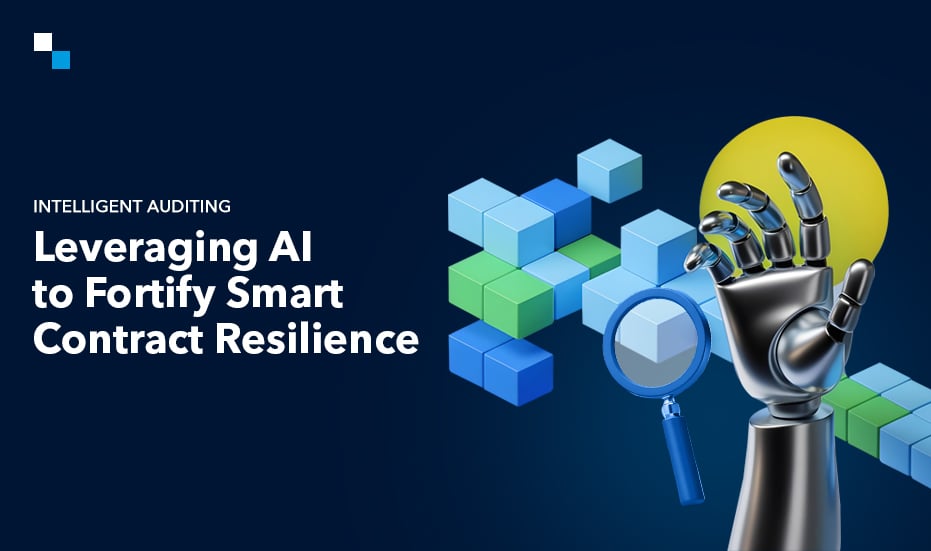
Simplifying Multi-Currency Payments with TRC20 Crypto Wallet Gateway
December 20, 2024
Why Is Arcade Game Development a Smart Investment Opportunity in 2025?
December 23, 2024Hybrid smart contracts are one of the emerging concepts in the crypto world, known for their irreplaceable capabilities. These digital contracts bridge on-chain and off-chain environments and offer enhanced functionality for dApps, which makes them ideal for serving new use cases across dozens of industries. From supply chain management to decentralized finance, several hybrid smart contract use cases highlight its unmatched versatility in solving complex real-world problems.
Hybrid smart contracts have taken the world by storm by unlocking efficiencies, reducing risks, and creating new business opportunities worldwide. In this blog, we explore what hybrid smart contracts are and how they can give an edge to industries across the globe.
The Glitch in Smart Contracts
Smart contracts are renowned for being robust, immutable, and verifiable contracts. It automatically maintains transparency, accuracy, and efficiency of contracts using an if/then framework when preconditions are met. However, this streamlined process also faces a challenge that drops down the smart contract functionality.
Traditionally, the data defining smart contract conditions originates solely from the blockchain. Smart contracts are only able to read the data in an on-chain programming language. This limitation of smart contracts prevents them from interacting with off-chain programming languages and restricts them from connecting with real-world data sources. This is why, Oracle was introduced to address this smart contract challenge.
Oracles act as middleware software that translates off-chain data into on-chain formats to bridge the gap and allow blockchain smart contracts to interact with external systems and real-world data sources seamlessly. At the same time, Oracle is a centralized entity, and there is no doubt that data can be compromised. The immutability and trustworthiness of smart contracts will always remain doubtful because of their centralized nature. This is when hybrid smart contracts came into play.
What are Hybrid Smart Contracts?
Hybrid smart contracts address the challenges associated with centralized Oracle by building a completely different computing environment that is decentralized. Hybrid smart contracts connect the blockchain network of the smart contract to a Decentralized Oracle Network or DON instead of a centralized Oracle to obtain off-chain data.
By definition-
“Hybrid smart contracts amalgamate the code running on-chain with data and computation from off-chain provided by DON or decentralized oracle networks.”
The Composition of a Hybrid Smart Contract
A hybrid smart contract is an application made of two vital components:
- Smart Contract— A code that runs exclusively on the Blockchain
- Decentralized Oracle Network— A distributed network of Oracle nodes that provide information from off-blockchain data sources to on-blockchain smart contracts.
The Impact of Hybrid Smart Contracts on Global Industries
Today, several businesses from industry verticals are leveraging the power of hybrid smart contracts. Take a look-
- Supply Chain
Smart contracts are limited to defining responsibilities, payment terms, and penalties for all parties. On the other hand, DONs or hybrid smart contracts enable businesses to monitor quality control, track shipments, trigger settlement payments and verify customer identities. They utilize a combination of privacy-preserving computations and external data feeds from web servers, IoT networks, other blockchains, and the enterprise backend.
Example: A shipment payment is released only after IoT sensors confirm the goods were delivered in perfect condition.
- Identity
Hybrid smart contract use cases also include identity verification. Smart contracts define the specific personal information required and the actions to be executed upon receiving it, whereas Decentralized Oracle Networks (DONs) handle secure computations to verify user information. This ensures that private details are neither exposed to counterparties nor stored in external systems. Hybrid smart contracts enable identity verification in a secure and privacy-preserving manner.
Example: Verifying your ID online without anyone seeing or saving your private details.
- Insurance
Smart contracts define premiums and claims processes and help ensure payouts are executed automatically when conditions are met. Hybrid smart contracts revolutionize parametric insurance by providing real-time connectivity to external data feeds, such as weather reports, for verifying claims and conducting risk assessments. Additionally, DONs can fetch complex risk evaluation outputs from cloud platforms and securely verify user identities.
Example: Automating payouts for crop insurance if DONs confirm there was a drought.
- Finance
Smart contracts define the rules of engagement (like prices and transaction conditions) for both buyers and sellers. On the other hand, DONs can provide real-time data for pricing, and market settlement and perform computations for other features like KYC checks, transaction concealment, transaction ordering, and off-chain processing.
Example: Hybrid smart contracts automate stock trades while ensuring prices come from trusted external sources. It helps build a secure, fast, and transparent trading experience.
- Governance
Smart contracts define the governance rules, profit-sharing, and decision-making framework. Hybrid smart contracts use cases also include communities using such contracts to manage shared resources and systems securely and fairly. DONs provide data and tools to distribute profits, calculate shared fees, verify member identities, prevent fake accounts (Sybil attacks), and even automate decisions.
Example: A community DAO automatically shares profits with members based on DON-verified contributions.
- Gaming
Smart contracts on gaming platforms define game rules, automate the issuance of rewards, and give users complete ownership of in-game assets through NFTs. It also provides definitive proof that all players get equal opportunities to win. On the contrary, DONs provide tamper-proof randomness that results in unbiased gameplay and fair prize allocations. DONs also allow gaming dApps to integrate real-world data, such as IoT sensor readings for augmented reality, and process specific game functions off-chain to enhance performance.
Example: Ensuring every player gets a fair chance to win by using randomness from a trusted DON.

Conclusion
Hybrid smart contracts are a revolutionary technology that allows both blockchain and non-chain blockchain infrastructure to interact without any glitches in a reliable, secure, scalable, and confidential manner. If you want to develop hybrid smart contracts today and need technical assistance, set up a call with one of Antier’s experts for smart contract development services today. Antier is a renowned smart contract development company that has a multidisciplinary team with sheer expertise in building smart contracts and powerful blockchain dApps as per your requirement. Contact us to avail our smart contract development services today!



